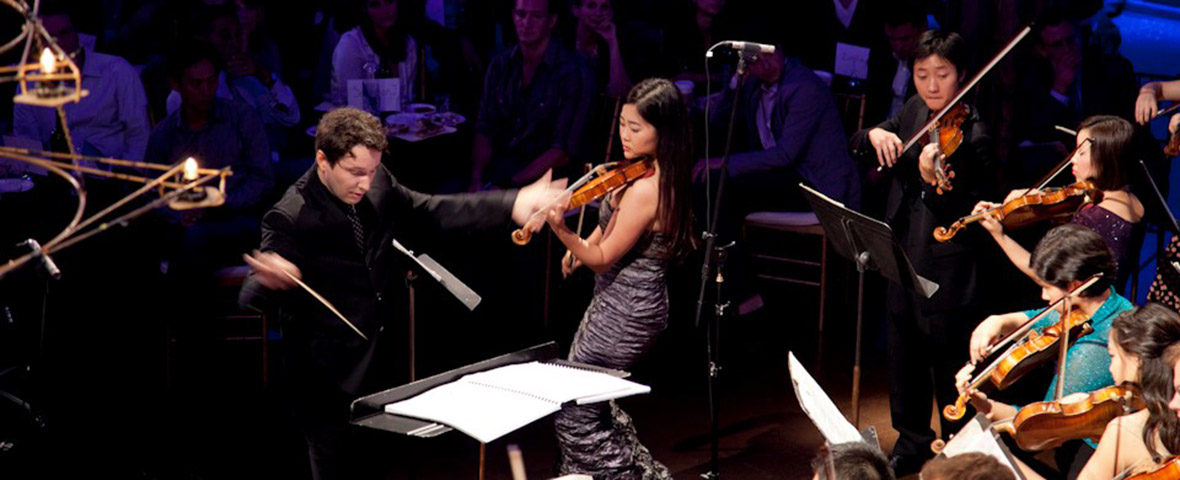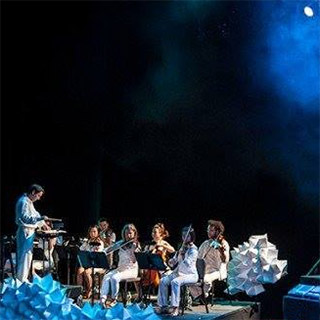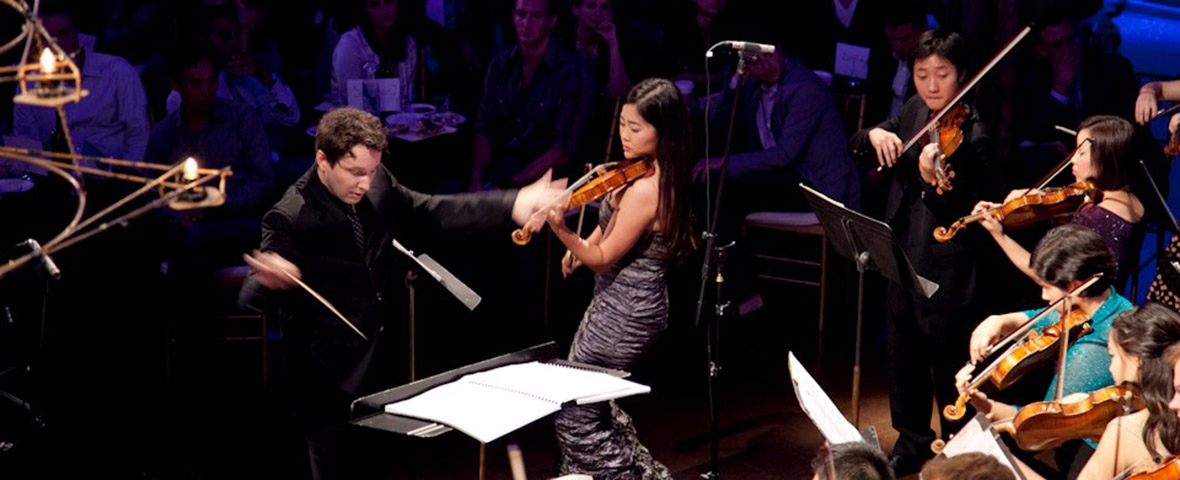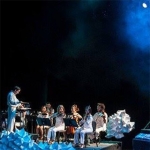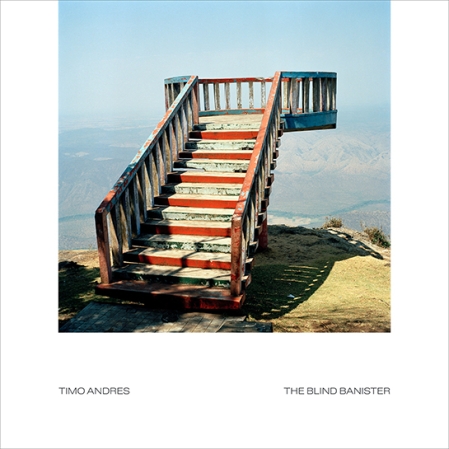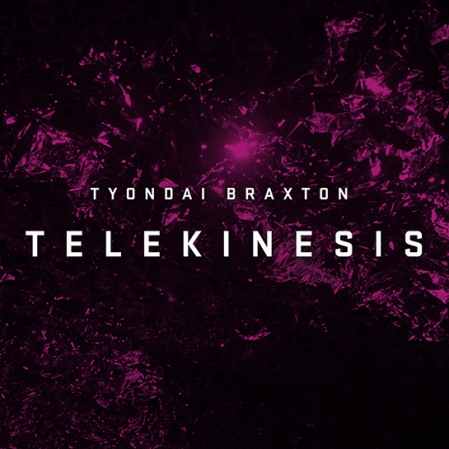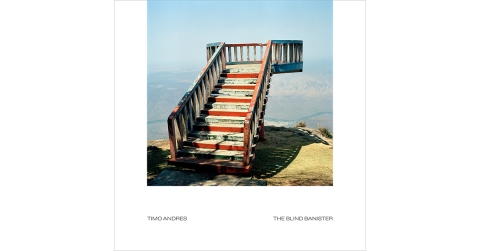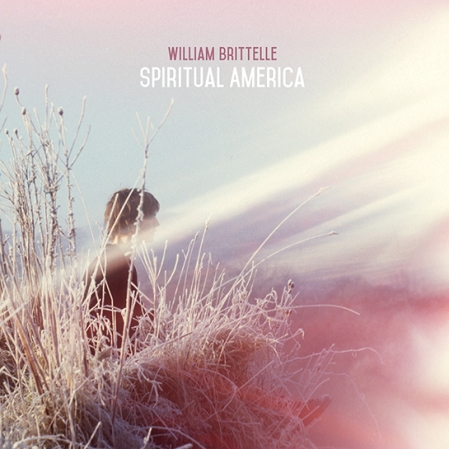Nonesuch releases composer/pianist Timo Andres’ The Blind Banister on March 22, 2024. The album comprises three works by Andres: the composer’s third piano concerto, The Blind Banister, with Andres as soloist, and Upstate Obscura for chamber orchestra and cello, with soloist Inbal Segev—both of which feature Metropolis Ensemble and conductor Andrew Cyr—and the solo piano piece Colorful History, also performed by the composer. The third movement of Upstate Obscura, “Vanishing Point,” is available today.
Andres makes his Carnegie Hall solo debut on February 23, performing, among other works, Etude No. 20 by Philip Glass, and the world premiere of his own new composition, Fiddlehead. The debut was originally scheduled for April 2020, as a performance of the pieces from the Nonesuch album I Still Play. When the pandemic halted it, Andres instead streamed the recital on YouTube. The Glass Etudes recently were published in a new box set folio that Andres co-edited, and he performs some of them on NPR’s Tiny Desk series.
The Blind Banister was written for pianist Jonathan Biss to be performed alongside Beethoven’s second concerto. Andres says, “My piece is not a pastiche or an exercise in palimpsest. It doesn’t quote or reference Beethoven. There are some surface similarities to his concerto (a three-movement structure, a B–flat tonal center) but these are mostly red herrings. The best way I can describe my approach to writing the piece is: I started writing my own cadenza to Beethoven’s concerto, and ended up devouring it from the inside out.” The piece was a finalist for the Pulitzer Prize in 2016.
Upstate Obscura takes its inspiration from American painter John Vanderlyn’s Panoramic View of the Palace and Gardens of Versailles. Andres says, “In taking on a quintessentially French subject, Vanderlyn somehow came up with something that feels American; it seems to regard Versailles at a bemused distance, with that characteristically American distrust of anything unnecessarily fanciful. My plan was to start with fragments of musical ornament from the French Baroque tradition—like loose chunks of masonry—and stretch them out until they no longer felt like ornaments ... The solo cello moves … just as a viewer might explore a virtual world—at times wandering, at times with purpose.”
Andres describes the album’s solo piano work: “Colorful History is a chaconne, stemming from a single augmented triad, and following the course of various directions it suggests. I think of this as a kind of extended metaphor for historical events, and how they echo each other without literally repeating.”
Timo Andres (b. 1985, Palo Alto, CA) is a composer and pianist who grew up in rural Connecticut and lives in Brooklyn, NY. His 2013 Nonesuch album of orchestral works, Home Stretch, has been hailed for its “playful intelligence and individuality,” (Guardian) and of his 2010 debut album for two pianos, Shy and Mighty (performed by himself and duo partner David Kaplan), Alex Ross wrote in the New Yorker that “it achieves an unhurried grandeur that has rarely been felt in American music since John Adams came on the scene … more mighty than shy, [Andres] sounds like himself.”
Current season highlights include a solo recital debut for Carnegie Hall, new commissions for the Moab Music Festival and the Segerstrom Center for the Arts, a tour with the Calder Quartet including performances at San Francisco Performances and Chamber Music Albuquerque, and the world premiere of a piano concerto for Aaron Diehl at the Los Angeles Philharmonic, led by John Adams. Andres’ orchestrations and arrangements for Justin Peck’s new production of Sufjan Stevens’s Illinoise were premiered in a sold-out summer 2023 run at The Fisher Center at Bard; the production is currently at the Chicago Shakespeare Theater and arrives in March at the Park Avenue Armory in New York City. Andres’ collaborations with Sufjan Stevens also include his May 2023 recording with Conor Hanick of Stevens’s latest album, Reflections; arrangements of ballets for New York City Ballet; and a solo piano album, The Decalogue. Timo Andres performed Philip Glass’ Etudes at Lincoln Center and in March in LA.
Metropolis Ensemble is a Grammy-nominated nonprofit organization dedicated to commissioning and producing ambitious creative projects and expanding opportunities for emerging professional musical creators and performers to inspire audiences. They partner with world-class institutions to create, commission, and produce site-specific performances, new works, recordings, and digital experiences.
A champion of new work, Grammy-nominated conductor Andrew Cyr has led premiere performances at venues ranging from Cité de la Musique (Paris, FR), The Met Museum, Celebrate Brooklyn(!), New Victory Theatre, Hamer Hall (Melbourne, AU), Radio City Music Hall, BAM’s Next Wave Festival, and the Tonight Show. Cyr’s work as conductor has been described by Esa-Pekka Salonen as “precise, rhythmically incisive and fluid. He made complex new pieces sound natural and organic.” Described as a “prominent influence in the world of newly emerging music” (Washington Post), Cyr’s passion for creating new platforms for outstanding composers and performing artists led him to found Metropolis Ensemble in 2006.
Inbal Segev is “a cellist with something to say” (Gramophone). Combining “thrillingly projected, vibrato-rich playing” (Washington Post) with “complete dedication and high intelligence” (San Francisco Classical Voice), she makes solo appearances at leading international venues and with preeminent orchestras and conductors worldwide. Celebrated for her fresh insights into music’s great masterworks, the Israeli American cellist is equally committed to reinvigorating the cello repertoire, and has commissioned and premiered major new works from an international who’s who of today’s foremost contemporary composers.
